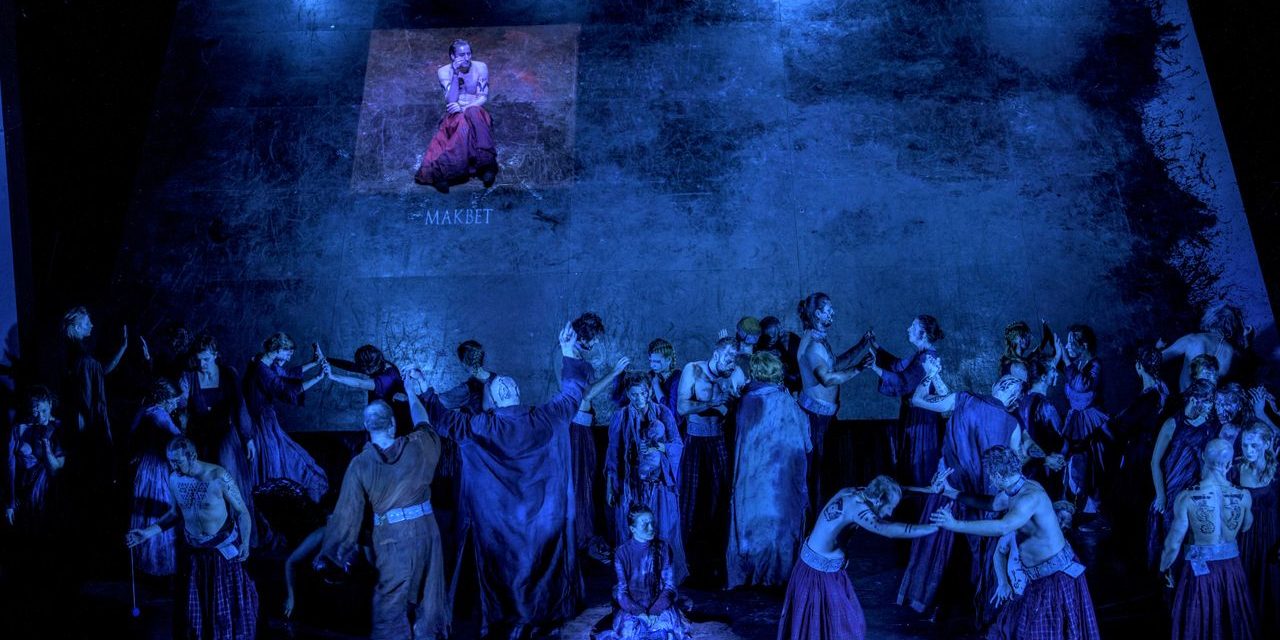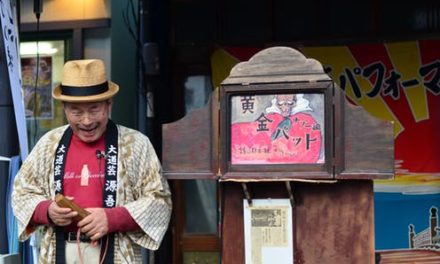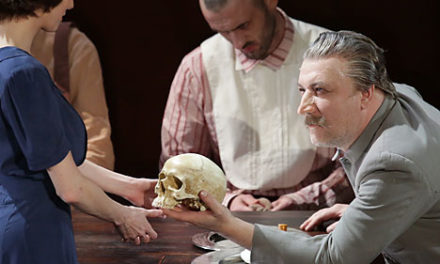This series introduces Polish directors whose work is recognized in Poland, but they are relatively unknown abroad like Agata Duda-Gracz. For previous parts go here.
Duda-Gracz: Director, Dramaturg, and Scenographer
Agata Duda-Gracz makes visual theatre in which she regularly acts not only as a director, but also scenographer, and dramaturg. However, she refuses to call her theatre authorial. Instead, she shares the creative ownership with her regular collaborators: light designer Kasia Łuszczyk, choreographer Tomek Wesołowski, and composers like Maja Kleszcz and Wojciech Krzak. An actor is for Duda-Gracz “her most important partner.” She casts her productions by getting to know the acting ensemble of each theatre she works for. The process includes conversations, workshops, and watching their performances. Some actors (Magda Kumorek for example) feature regularly in her productions. The importance of the performers in Duda-Gracz’s creative process translates into the productions that offer an in-depth study of characters.
Duda-Gracz’s theatre is often based on classical texts. If she engages with contemporary writing, it is usually her own work. This was the case in her production Będzie Pani Zadowolona, Czyli Rzecz O Ostatnim Weselu We Wsi Kamyk [You Will Be Happy Or The Story About The Last Wedding Party At The Kamyk Village] at the Nowy Theatre in Poznań. The production won the award for “Best Director” at the 2016/17 Competition for Staging of Polish Contemporary Plays. Będzie Pani Zadowolona was inspired by Wiesław Łuka’s reportage Nie Oświadczam Się [I’m Not Proposing].
![Anna Mierzwa in Będzie pani zadowolona czyli rzecz o ostatnim weselu we wsi Kamyk [You will be happy or the story about the last wedding party at the Kamyk village], dir. by Agata Duda-Gracz, Nowy Theatre, Photo by Greg Noo-Wak](https://thetheatretimes.com/wp-content/uploads/2017/10/Centralną-postacią-spektaklu-Agaty-Dudy-Gracz-„Będzie-pani-zadowolona-czyli-rzecz-o-ostatnim-weselu-we-wsi-Kamyk”-jest-Widząca-zwana-Czarcią-Pizdą-Anna-Mierzwa-1024x683.jpg)
Anna Mierzwa in Będzie Pani Zadowolona Czyli Rzecz O Ostatnim Weselu We Wsi Kamyk [You Will Be Happy Or The Story About The Last Wedding Party At The Kamyk Village], dir. by Agata Duda-Gracz, Nowy Theatre, Photo by Greg Noo-Wak
Non-political theatre
Theatre and politics in Poland function practically as a synonym, so Duda-Gracz’s insistence that her theatre is apolitical is unique. Instead, her work explores issues like the nature of myth, sacred and profane, the moral condition of the world, or dialogues with her father’s art (painter Jerzy Duda-Gracz). Recently, however, she admitted, that the current political situation in Poland makes it very difficult. Although she does not want to make political theatre, she must “side with cut trees, undereducated children, people fired from their work, people deprived of human rights, and horses from Janów” (Gazeta Wyborcza).
Duda-Gracz’s newest production, Macbeth, has just premiered at the Capitol Theatre in Wrocław.
This post was written by the author in their personal capacity.The opinions expressed in this article are the author’s own and do not reflect the view of The Theatre Times, their staff or collaborators.
This post was written by Kasia Lech.
The views expressed here belong to the author and do not necessarily reflect our views and opinions.


















